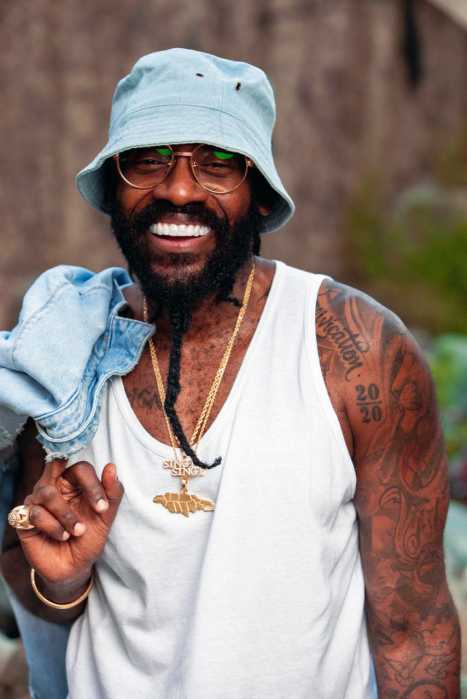Florence Nightingale is perhaps the most known woman to be credited for serving as a pioneering professional in the field of nursing. Throughout the world she is acclaimed, the founder of modern nursing. Popularly referred to as “The Lady With The Lamp” — due to her habit of tending to the sick at night — the rich, well-travelled, upper-class, British legend was actually born near Florence, Italy, May 12, 1820.
However, 15 years before Nightingale’s birth, Mary Seacole was born in Kingston, Jamaica.
Her father was a Scottish army officer and her mother a free Black woman who ran a boarding house in the capital city of Kingston.
Of her Black roots Seacole allegedly stated: “I have a few shades of deeper brown upon my skin which shows me related—and I am proud of the relationship—to those poor mortals whom you once held enslaved, and whose bodies America still owns.”
Seacole’s mother treated the sick.
Allegedly, she believed in using herbal medicines to cure ailing patients. These medicines were based on the knowledge of slaves who were brought to the island from Africa.
By her deeds and in true Jamaican form she became known as a “doctress.”
According to historical data, Seacole loved travelling and as a young woman visited the Bahamas, Haiti, Panama and Cuba. In these countries she collected details of how people used local plants and herbs to treat the sick. On one trip to Panama (where her half-brother moved) she helped treat people during a cholera epidemic. Mary also carried out an autopsy on one victim and was therefore able to learn even more about the way the disease attacked the body.
In 1850, Kingston was hit by a cholera epidemic.
Using herbal medicines, Seacole played a pivotal role in battling the disease. She also dealt successfully with a yellow fever outbreak in Jamaica. Her fame as a medical practitioner grew and later in addition to fighting fevers, she performed operations on people suffering from knife and gunshot wounds.
When the Crimean War broke out in Europe, a cholera epidemic also posed a threat to British troops. It is documented that soon after British soldiers arrived in Turkey, they began going down with cholera and malaria.
Seacole applied to the British War Office to assist but was refused.
There was considerable prejudice against women’s involvement in medicine and to her dismay her offer was rejected.
Instead of taking no for an answer, Seacole who had become a successful business woman in Jamaica travelled at her own expense from Jamaica to Crimea.
Simultaneously, a British newspaper publicized the fact that a large number of British soldiers were dying of cholera. The report caused a public outcry but also forced the government to change its policy on women in medicine.
Nightingale, who had little practical experience of cholera was chosen to take a team of 39 nurses to treat the sick soldiers.
Although Seacole was an expert at dealing with cholera, her application to join Florence Nightingale’s team was also rejected. On arrival to the warzone, Seacole visited Florence Nightingale at her hospital at Scutari but once again Seacole’s offer of help was refused. Unwilling to accept defeat, she started up a business called the “Hotel” which was erected a few miles from the battlefront.
There she sold food and drink to the British soldiers.
With the money she earned from her business Seacole was able to finance the medical treatment she gave to the soldiers.
Mostly, she assisted battlefield wounded soldiers.
Within a few weeks an estimated 8,000 men were suffering from the two dreaded diseases, cholera and malaria.
At the time, disease was the worst enemy.
In the Crimean War, of the 21,000 soldiers who died, only 3,000 died from injuries received in battle.
On several occasions Seacole was found treating wounded soldiers from both sides while the battle was still going on.
After the war ended in 1856 Seacole returned to England where she became extremely popular among military personnel. Many of them helped to raise money for her when she faced destitution after the war.
Her plan then was to work as a nurse in India but she was unable to raise the necessary funds.
Seacole died in London, England on May 14, 1881.
Perhaps, Nightingale’s repute is attributed to the fact she was born to a wealthy upper-class family, at a time when women of her class were expected to focus on marriage and child bearing.
However, in the Caribbean, Seacole is acclaimed as a pioneer in the nursing profession and was posthumously awarded Jamaica’s third highest honor — the Order or Merit — in 1991. On the island, numerous national monuments bear her name. The headquarters of the Jamaican General Trained Nurses’ Association was christened “Mary Seacole House” in 1954. And a residence hall at University of the West Indies is named for the pioneering nurse.
In addition, a ward at Kingston Public Hospital is also named in her memory.
Her grave was rediscovered in 1973 and a service of re-consecration was held in her honor later that year.
Her impressive gravestone was also restored by the British Commonwealth Nurse’s War Memorial Fund and the Lignum Vitae Club. The centenary of her death was celebrated with a memorial service on May 14, 1981.
The medical field provides a professional career environment that requires skilled and caring people.
In the United States, the first Black woman in America to be become a professional nurse was also making groundbreaking achievement during the late 19th century.
Mary Eliza Mahoney was born on April 16, 1845 in Dorchester, Massachusetts. Mahoney worked for 15 years at the New England Hospital for Women and Children (now called the Dimock Community Health Center).
Reportedly, founded in 1862 by two women who were doctors, the hospital also started the nation’s first nursing school program in 1872.
Mahoney attended and graduated in 1905. After graduating from the historic nursing school, Mahoney worked as a private care nurse. She earned a reputation for the care she provided for her patients.
From 1911 to 1912, Mahoney worked as the director of the Howard Orphan Asylum for Black Children in Long Island, New York. When Mahoney retired from the medical field, she became a social advocate for securing the voting rights of women in America.
Mahoney died on Jan. 4, 1926 at the age of 80.
In 1993, she was posthumously inducted in the National Women’s Hall of Fame.
The Mary Mahoney Memorial Health Center in Oklahoma City, Oklahoma is named in her honor.
Catch You On The Inside!


























